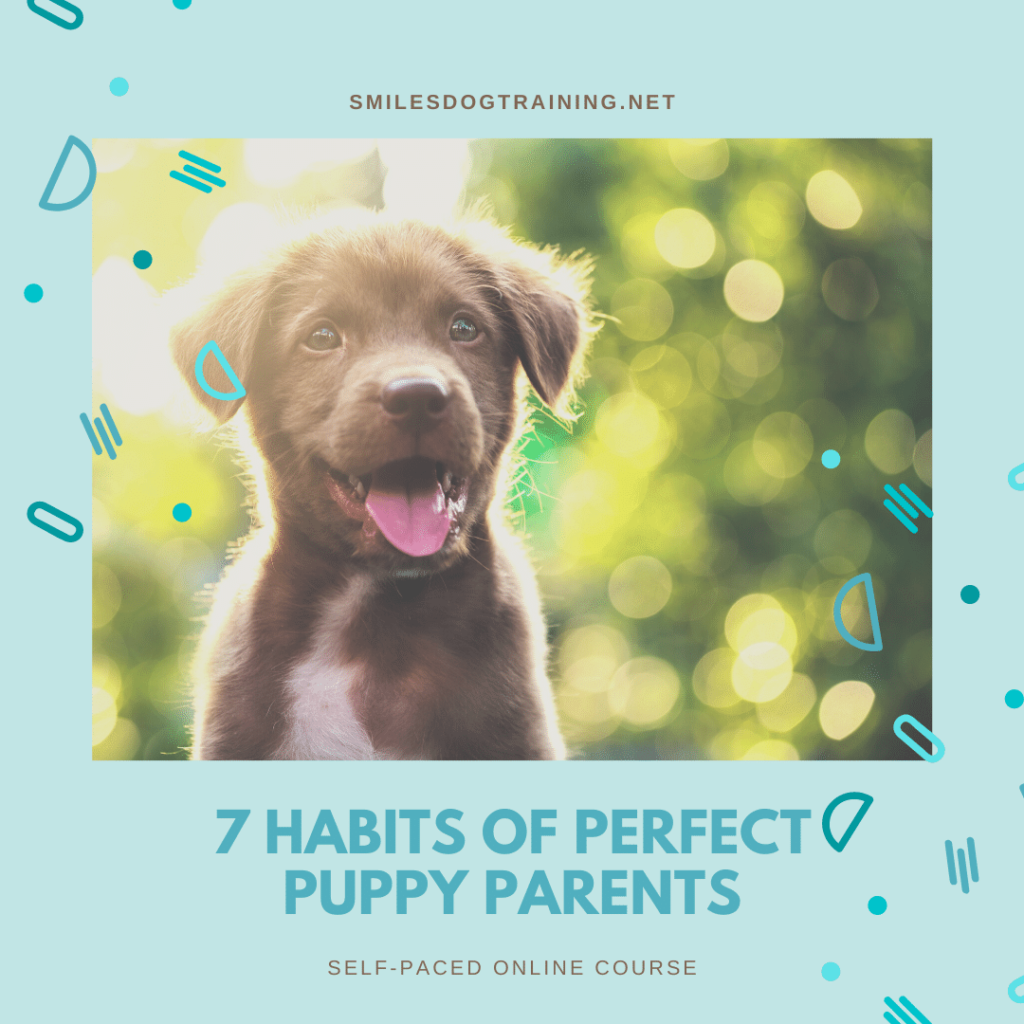Training Courses

7 habits of perfect puppy parents
This FREE online course is geared toward puppy parents with pups 8-20 weeks old, but can be helpful to pet parents with dogs of all ages!
Don’t have your puppy yet? Even better! This course is designed to help you set them up for success right from the start.
Check out the rest of our courses here!
F.A.Q.
Common service and training questions.
Reward-based training is not a “free for all” for your pet! Every behavior your pet does is motivated by something – emotions or basic needs. We teach you management techniques to prevent inappropriate behaviors and use reward-based training with your pet to teach them more appropriate behaviors. Ignoring behaviors can be equally detrimental to the process because it means we are ignoring those emotions or basic needs. Instead, we revisit our management techniques to change what wasn’t working so your pet is set up for success in the future. You can read more about our training philosophy and ethics here.
Trainers love to use food as a reinforcer in training because food is a powerful motivator for most animals. Whether or not an animal takes food during a training session also tells us a lot about their emotional state and whether we’ve designed the session to be conducive to learning. However, we have worked with dogs and cats in a variety of situations where food was not the strongest motivator for that situation. We focus on teaching you and your pet, and the rewards used are based on your pet’s specific needs.
Our goal with training is to introduce other real-life rewards (praise, petting, play, opportunity) to pets as soon as possible in the learning process. Our main goal is to improve the human-animal bond between you and your pet. This bond tends to “blow open” your pet’s capacity to learn from you, and the bond itself can ultimately become the reward. Using food in early training builds the foundation for using real-life rewards later once behaviors are well-established!
There are a lot of different reasons why an animal doesn’t take food in a specific situation. The food may not be interesting enough or the situation too stressful. The animal may have recently eaten or thinks tennis balls are so much more exciting than hot dogs! It is our job to help you figure out why food isn’t a motivator and adjust accordingly.
Again, this depends on your pet’s preferences! We’ve used hot dogs, turkey, cream cheese, string cheese, easy cheese, wet food, chewy treats, crunchy treats, tuna, chicken, peanut butter and even just kibble to work with animals. Every animal is different. It is important to try a variety of food reinforcers to determine their value in your pet’s eyes. You may think veggies are a treat, but if your dog just finds them to be so-so then you need to find something more exciting!
When using food as a reinforcer during training, it is important to keep the rewards very small so your pet doesn’t fill up right away and looks forward to more training later. Training practice should be done in short spurts throughout the day, and you can modify your pet’s regular meals to accommodate the additional food they receive during training.
Behavior is fluid and based on your pet’s motivations. There is, unfortunately, no cookie-cutter recipe for training and behavior modification. Each case is unique and heavily dependent on owner commitment to training and management. We can, however, guarantee to provide you with scientifically based knowledge and techniques for training, as well as a commitment to ensuring client satisfaction.
We know people are sometimes surprised that we don’t offer individual sessions for purchase, and we like to be transparent about why. Dog training is a lot like fitness training – it takes time and effort to get the results you want. When we first started, we offered individual sessions and ended up working with most clients for at least four sessions anyway (at their request!). The clients that only wanted a single in-person session were looking for that “magic pill”, and that’s just not what we offer (or what any reputable trainer should offer). We want to provide a training experience that is successful and long-lasting, and we build our services to provide just that!
We are happy to provide refunds to clients who cancel their prepaid lessons at least 48 hours in advance of the appointment. Since training and behavior modification success is dependent on owner commitment to training and management, we are unable to provide refunds for any services already provided.
